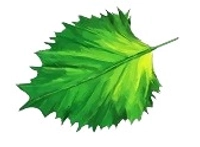
Joginder Nursery
Product details
The Poinsettia, scientifically known as Euphorbia pulcherrima, is a popular and iconic plant, especially during the holiday season. Here's some information about it:
2. **Native Habitat**: Poinsettias are native to Mexico, where they grow as shrubs or small trees in the wild. In their natural habitat, they can reach heights of up to 10 feet (3 meters).
3. **Cultural Significance**: The Poinsettia has a rich cultural history and is closely associated with the Christmas season in many parts of the world. It is named after Joel Roberts Poinsett, the first United States Minister to Mexico, who introduced the plant to the U.S. in the early 19th century. In Mexico, the plant is known as "La Flor de Nochebuena" or "The Christmas Eve Flower."
4. **Indoor Care**: Poinsettias are often grown as potted plants indoors during the winter months. They prefer bright, indirect light and should be placed near a window where they can receive several hours of sunlight each day. Avoid placing them in direct sunlight, as this can cause the leaves to wilt and scorch. Poinsettias prefer temperatures between 65°F and 75°F (18°C to 24°C) during the day and slightly cooler temperatures at night. Keep the soil evenly moist but not waterlogged, and ensure that the plant's container has proper drainage.
5. **Longevity**: Poinsettias can be challenging to re-bloom indoors after the holiday season, but with proper care, it is possible. After the bracts begin to fade, the plant can be trimmed back and placed in a cool, dark room for several weeks to encourage dormancy. After this period, gradually reintroduce the plant to light and resume watering to stimulate new growth.
6. **Toxicity**: Contrary to popular belief, Poinsettias are not highly toxic to humans or pets. While the milky sap of the plant can cause mild irritation or stomach upset if ingested, severe poisoning is rare. It's still a good idea to keep Poinsettias out of reach of small children and pets.
Poinsettias are cherished for their vibrant colors and festive charm, making them a beloved symbol of the holiday season in many households and cultural traditions.
Similar products